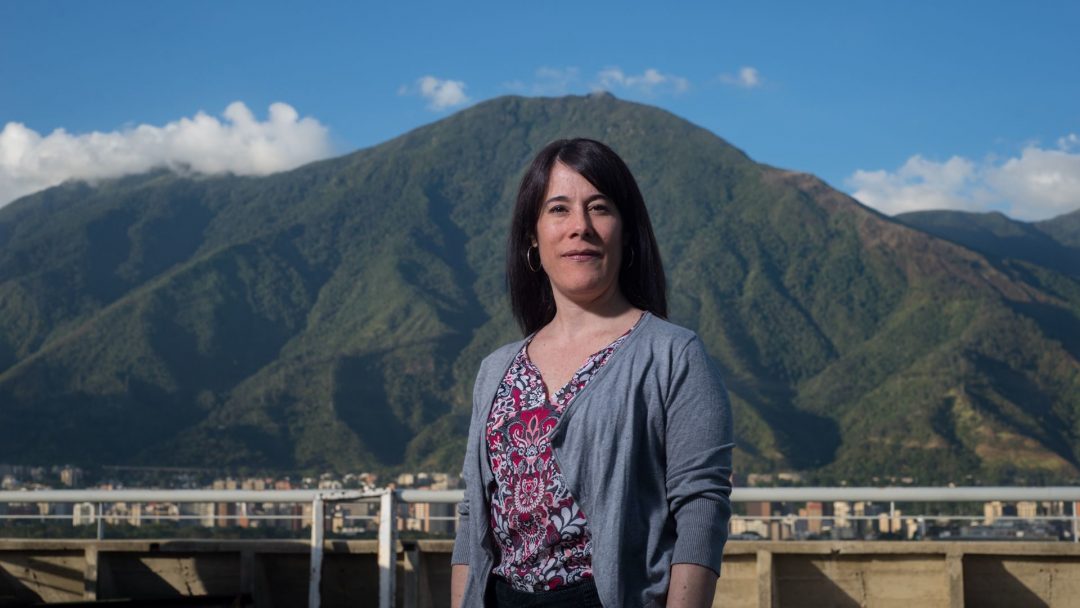Civic space in Venezuela is at serious risk of being shut by the deepening of a State policy of intimidation and systematic retaliation against CSOs that seeks to leave the population defenseless in the face of the serious human rights crisis, a massive complex humanitarian emergency and multiple deprivations of rights.
The policy against CSOs operates through numerous rulings, laws and regulations issued in the last 20 years by the executive, judicial and legislative powers in order to nullify the capacities of civil society organizations to act before government bodies and participate in public decision-making processes -including cutting all kinds of public support and funding and surveilling, harassing and judicially persecuting the organizations for their work of support or provision of services to communities and vulnerable populations, assistance to victims of abuse, discrimination and deprivation of rights, and reach out to international protection bodies- by deeming them an “internal threat” to security and sovereignty for their legitimate autonomous and independent work.
The Law on supervision, regularization, action and financing of NGOs and related subjects
Part of this State policy is the draft law “on the supervision, regularization, action and financing of NGOs and related subjects” announced a few days ago and introduced before the National Assembly by the MP and vice president of the ruling party, Diosdado Cabello, and swiftly approved in the first discussion at the government-controlled body. Based on its introduction speech before the AN and an unofficial text that circulated among the media, the bill is an overtly serious instrument for the violations of the standards of freedom of association because, in addition to all the violations of current laws and sentences, it declares all CSOs null until they meet the requirements established in the document, within a one year period after the creation of a uniform and mandatory NGO registration system administered by the Executive branch.
Among the most severe violations, this bill:
- Leaves all organizations in legal and administrative limbo and makes their regularization unfeasible due to requirements that depend on the discretion of the State and that are currently restricted;
- Submits NGOs to the absolute control of the State, in matters concerning the freedom and autonomy to define their purposes, governance, and access to means of work and operation, which will have to be authorized by the Executive branch by a resolution;
- Creates a discriminatory and segregative regime of duties and sanctions for NGOs, with persecutory purposes;
- Establishes the presumption and sanction of illicit acts related to the supposed “political purposes” of the organizations, their failure to declare their funds and their origin or to register mandatory information, including registration for comprehensive defense;
- Is also an instrument for retaliation as during its introduction for discussion it was stated that “all NGOs have a political character” and a list was presented of 62 NGOs that would be persecuted as soon as the bill is approved.
The Members of Parliament Diosdado Cabello and Jorge Rodríguez were very clear in the purpose of the Law of controlling the activity, political action and work of Human Rights and Humanitarian Organizations that provide assistance to victims and the most vulnerable sectors and that have built their legitimacy in denouncing human rights violations. But that’s just the tip of the iceberg.
Not only the NGOs will be affected but the whole country: supporters and opponents of the government, people and groups without political affiliation, workers, unions, people in rural areas, artists, the cultural, research and religious sectors, women, indigenous groups, and LGBTIQ+ people. In short, the Venezuelan civic space in its entirety will be affected by the absolute control over the voices of the country. This law could constitute one of the greatest setbacks in democratic freedoms and, above all, the independence of civil society action as all social action will be subjected to the application of punitive and persecutory regulations at the discretion of the State and its vision of all dissent as an enemy.
Representatives of different CSOs held a meeting with the UN High Commissioner for Human Rights, Mr. Volker Turk.
In the meeting held in late January with the High Commissioner for Human Rights, Mr. Volker Turk, the representatives of about ninety organizations had the opportunity to raise a series of points.
They expressed interest in making the Memorandum of Understanding signed with representatives of the State publicly accessible following the principle of transparency.
They demanded that the complete mandate of the OHCHR be fulfilled in the country, and give the component of human rights protection the same relevance as technical assistance to the authorities.
They demanded to avoid assuming the official information cited in the reports on Venezuela as true before it is duly contrasted with other sources.
They requested the creation of a participatory and transparent follow-up mechanism of compliance with the recommendations made by the OHCHR to the Venezuelan State and incorporate them both in the oral updates and subsequent reports on Venezuela.
The representatives of the CSOs that took part in the meeting also highlighted the need to advance the visit of the special rapporteurs and procedures of the United Nations, without being limited to those that the Venezuelan State decides to invite.
As a fundamental matter, they requested the explicit support of the OHCHR for the United Nations and regional mechanisms for the protection of human rights such as the International Independent Fact-Finding Mission and even the International Criminal Court.
Given the imminence of upcoming electoral processes in Venezuela -the presidential election in 2024 and the parliamentary election of 2025-, we urge the OHCHR to manifest its opinion on the conditions of said processes.
Translated by José Rafael Medina




